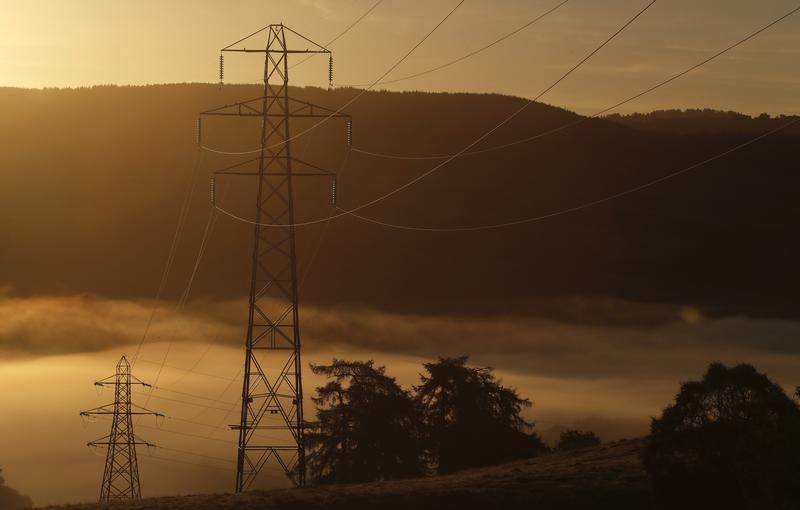By Susanna Twidale
LONDON (Reuters) - First Utility, one of Britain's biggest independent energy suppliers, said on Thursday it expects the government to intervene in the country's electricity market to keep a lid on soaring bills.
Energy bills have doubled in Britain over the past decade to around 1,200 pounds a year, leading to allegations that utilities were overcharging customers.
"I think the government will do something to intervene in the market," Ed Kamm, UK managing director at First Utility, one of the independent firms seeking to win market share from the incumbent "Big Six" energy suppliers, told Reuters on the sidelines of the Energy UK conference in London.
"It's unclear what that would be, but Theresa May set out her stall at the (ruling Conservative party) conference and said she wanted to do something about people on high tariffs so we expect the government to take some action," he said.
May, the prime minister, said last month it was unfair that most British energy consumers were stuck on the most expensive tariffs, and warned that the government could intervene when markets are dysfunctional.
The government has not given details of its plans, but energy analysts have suggested it could force companies to switch customers to their cheapest tariffs when contracts end.
Utilities have denied overcharging, but the Competition and Markets Authority (CMA) found that British households overpaid 1.4 billion pounds a year from 2012 to 2015 because of uncompetitive standard tariffs to which about 70 percent of the largest companies' customers are subscribed.
The CMA in June ordered Britain's largest energy suppliers to cap some of their most expensive tariffs.
Mark Hodges, chief executive of Centrica’s (L:CNA) British Gas, one of Britain's largest energy suppliers, said at the event the CMA measures should be given time to work in order to improve the market.
Peter Atherton, associate and analyst at Cornwall Energy, said recent political events, such as the vote by Britons to leave the European Union and the U.S. presidential election victory by Donald Trump, showed governments could not afford to risk ignoring populist topics such as high energy prices.
"Ultimately there is only one answer when the government is faced with the decision to force something very unpopular on the electorate or screw the investor," he said.
